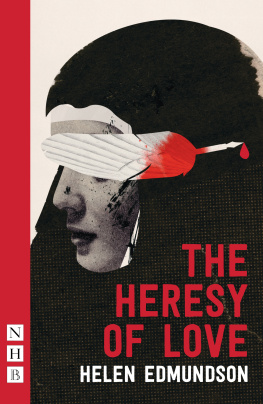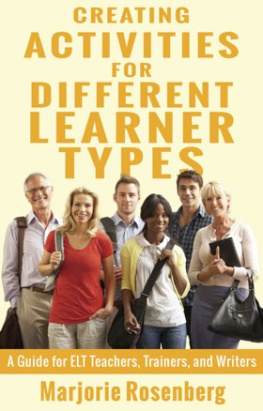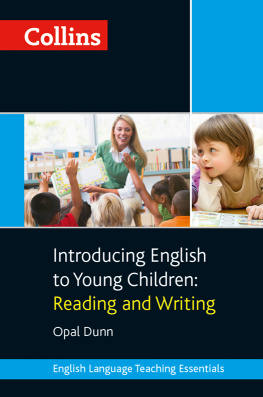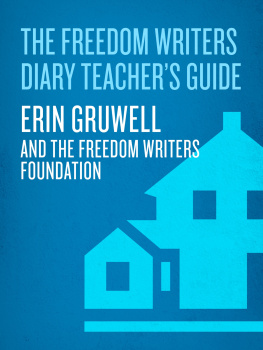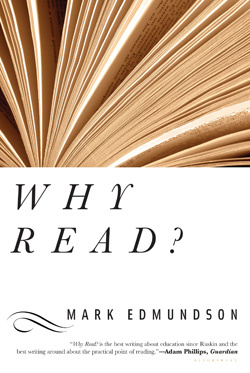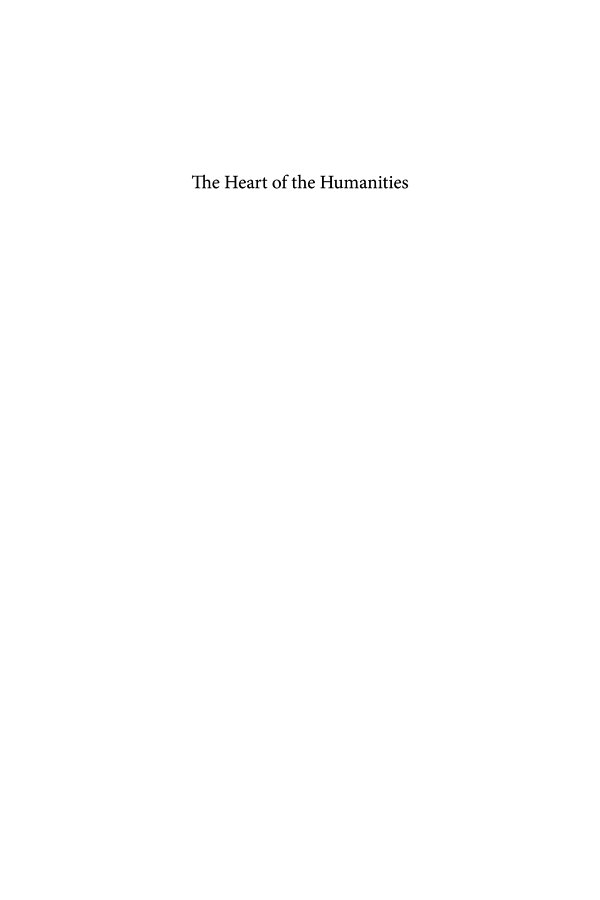

For Harold Bloom, Richard Poirier, and Richard Rorty: Great Teachers.
BY THE SAME AUTHOR
Towards Reading Freud: Self-Creation in Milton, Wordsworth, Emerson, and Sigmund Freud
Wild Orchids and Trotsky: Messages from American Universities (ed.)
Literature against Philosophy, Plato to Derrida
Nightmare on Main Street: Angels, Sadomasochism, and the Culture of Gothic
Teacher: The One Who Made the Difference
Why Read?
The Death of Sigmund Freud: The Legacy of His Last Days
The Fine Wisdom and Perfect Teachings of the Kings of Rock and Roll: A Memoir
Why Teach? In Defense of a Real Education
Why Football Matters: My Education in the Game
Self and Soul: A Defense of Ideals
Why Write? A Master Class on the Art of Writing and Why it Matters


Contents
Books are the best of things, well used; abused, among the worst. What is the right use? What is the one end, which all means go to effect? They are for nothing but to inspire.
RALPH WALDO EMERSON, THE AMERICAN SCHOLAR
Reading, writing, teaching: they form a triad. They are at the heart of the humanities.
We know all too well that these are not the most lavishly rewarded of pursuits. No one grows rich from reading and teaching. And though fame and fortune may arise from writing, they are anything but certain. So why would anyone want to spend a life in reading, writing, and teaching? Why would one want to be, in the broadest sense of the term, a humanist?
The world often seems to believe that reading, writing, and teaching are passive pursuits. The reader sits quietly, book in hand, not moving, making an occasional note: the image of passivity. And the writer? The writer is off on the sideline, not immersed in the worldly fray. The writer tries to make the record, standing apart from the pulling and hauling, and watching and wondering at it all. Statesmen and generals and business moguls write books, yes. But not until their real lives are over, not until they have done what they have come into the world to do. Then it is time for appraisal, and (often) self-sanctification.
And as to teachers, who are they? Arent they people who have not quite grown up? They never gathered the strength to leave school and make their mark on the world, or fail trying. They stand in the bleachers cheering their students, on. But do they have the wherewithal to enter the game themselves and see what they can do? The teacher, to some, stands in suspended animation between youth and true maturity, unwilling to leave the cloisters and engage with the life of the world. Maybe he knows that having passed and failed so many he would be destined for failure in the larger sphere. He chooses to be a demigod, lording it over the tiny kingdom of his classroom, satisfied with small honors and grudging deference. In the darker, more determining provinces of his heart lies a certain muted anxiety: he is, he fears, frightened of life.
Reading, writing, teaching: at best they are not life, but preparations for life. At worst, they are evasions of life: activities the worldly ones hold in mild approbation when the lights are up, but sneer subtly at when they move off together into paneled rooms, amber glasses in hand, away from the ears of children.
But do not think so, you shall not find it so, as Shakespeares prince says: at least if you ponder the question. Reading and writing and teaching are potentially magic: they turn one object into another, though not with a flash of the hand and a stirring of the wand, but through work, hard and (why not say it?) noble work.
Reading, to start with. If its not common knowledge, it should be: you can read your way out of your life. You can read your way from one state of mind toward another. For all writing that matters testifies to a fundamental truth: there are multiple ways of seeing the world. There are many angles; complex adjustments; visions and revisions.
My way isnt the only way, the beginning reader learns. And then the corollary: there may be better ways out there. Or at the very least I should experiment with the possibility that there are. We are all socialized one time. We grow up immersed in the manners and morals and the rituals of our tribe. We are told by our parents, our first teachers and coaches, and our religious leaders what life is: what to value and what to shun. All honor to them: all respect to parents and teachers and clergy. They give us terms for comprehending experience: they instill their preferred vocabularies. They help turn us from bawling, scrapping creatures into boys and girls and then young men and young women.
But most of these figures of authority know only one way and too often they feel it to be the sole right way. They do not know they speak one language and that in truth there are many. They believe that because they have the first words in a young persons life, those words must be the last. They often do not know that life is multiple, rich, and strange and forever coming to be.
But the great writers do know that. They know that they themselves could not quite find peace with the language of their tribe and have had to strike out and find a new idiom. John Keats valued life in a way that none of his contemporaries and none of his precursors ever quite did. He knew something about love, something about enchantment, and something about failure and pain that they did not understand. Keats loved Shakespeare as much as anyone ever has, but beyond Shakespeare there were surely other worlds: Keats was determined to find them. He began his quest by reading: he was inspired by Chapmans translation of Homer; the myth of Eros and Psyche; the tales of the god Hyperion. Let us have the old poets and Robin Hood! Keats says. Keats brought the riches of the past into the present and caused them to live on into the future.
You can read your way out of your own life and then in time you can enter a new onethough to do that, you will probably need to learn writing . But by reading, you can begin to make a move. Think of Malcolm X in jail in Norfolk, Massachusetts. At the time of his incarceration he was a petty thief and drug dealer. In time he would become a leader of the Nation of Islam, and then, breaking with the Nation, an independent warrior for racial justice.
The Malcolm Little who went off to prison had a lively mind: he had ideas, no one thought more or harder than he did. But when he stepped into debates in the prison yard, he was easily bested. He had no facts to buttress his arguments; didnt know what was new and what old. Hed done no real reading.
So he ordered books from the prison library, loaded his cell, and set to work reading. He was determined to read the best works: the great philosophers, the economists, the analysts of society as it is and ought to be. But he could make nothing of the books: his vocabulary was too small. But there were dictionaries. So Malcolm Little got one and went to work, looking up every word that puzzled him. But he spent so long in the dictionary that by the time he returned to the bottom of the page of his book, he forgot what the substance of the top had been. He was weak where he needed to be strong.
Next page

